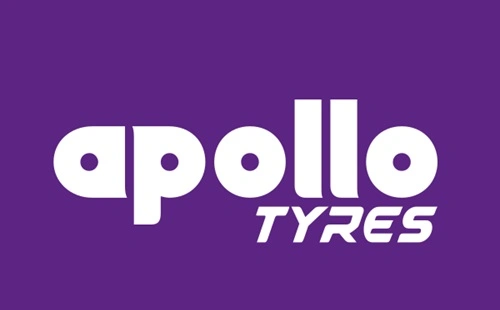Apollo Tyres, one of India’s leading tyre manufacturers, is a trusted name in the automotive industry. Known for its high-quality tyres catering to passenger vehicles, commercial vehicles, and two-wheelers, Apollo Tyres has established itself as a global brand with a strong presence in more than 100 countries. With the ever-growing demand for vehicles and the need for regular tyre replacement and maintenance, investing in an Apollo Tyres franchise presents a lucrative opportunity for entrepreneurs.
This article provides a detailed analysis of the Apollo Tyres franchise cost, requirements, and profitability in India.
Why Invest in an Apollo Tyres Franchise?

The Indian automobile market is one of the largest in the world, and with increasing vehicle ownership, the demand for tyres is constantly growing. Here are the key reasons why investing in an Apollo Tyres franchise is a smart business move:
- Trusted Brand: Apollo Tyres is a well-established brand with a strong reputation for quality and reliability.
- Growing Demand: As vehicle ownership continues to rise across urban and rural areas, the demand for tyres, replacements, and maintenance services is steadily increasing.
- Diverse Product Range: Apollo Tyres caters to multiple segments, including passenger cars, trucks, buses, two-wheelers, and off-road vehicles.
- Proven Business Model: The company’s established franchise network provides a reliable and scalable business opportunity.
- Comprehensive Support: Apollo Tyres offers extensive training, operational guidance, and marketing support to its franchise partners.
Apollo Tyres Franchise Cost in India
Starting an Apollo Tyres franchise requires a moderate to substantial investment, depending on the location and the type of franchise model chosen. Below is a breakdown of the costs involved:
1. Initial Franchise Fee
The initial franchise fee for an Apollo Tyres outlet typically ranges between ₹2 lakh and ₹5 lakh, depending on the store format and location. This fee includes the right to operate under the Apollo Tyres brand and access its product portfolio, systems, and training.
2. Store Setup Costs
Setting up an Apollo Tyres outlet requires a well-designed retail space to display tyres, accommodate customers, and house equipment for tyre services. The setup costs include:
- Retail Space: A minimum area of 500 to 1,500 square feet is required, depending on the store size and the range of services offered. Rental costs vary by city:
- Tier 1 Cities: ₹50,000 to ₹1.5 lakh per month.
- Tier 2 and Tier 3 Cities: ₹30,000 to ₹75,000 per month.
- Interior Design and Furnishings: ₹5 lakh to ₹10 lakh for shelves, counters, signage, and seating areas.
- Service Equipment: ₹10 lakh to ₹15 lakh for wheel alignment machines, tyre changers, balancers, and other tools required for servicing.
3. Inventory and Stock
An initial investment in tyre inventory is essential to stock the outlet with Apollo Tyres’ products. This cost typically ranges between ₹10 lakh and ₹20 lakh, depending on the store’s size and target market.
4. Licensing and Permits
Franchisees must obtain the necessary licenses and permits to operate, including:
- Trade License: ₹10,000 to ₹25,000
- GST Registration: ₹10,000 to ₹20,000
- Local Municipal Permits: ₹5,000 to ₹10,000
5. Marketing and Advertising Contribution
Franchisees are required to contribute a percentage of their revenue (typically 2% to 3%) toward Apollo Tyres’ national and local marketing campaigns.
6. Working Capital
A working capital reserve of ₹5 lakh to ₹10 lakh is recommended to manage day-to-day operational expenses, including staff salaries, utilities, and additional inventory purchases.
Total Investment
Considering all components, the total investment required to establish an Apollo Tyres franchise in India typically ranges between ₹25 lakh and ₹50 lakh, depending on the location, store size, and service offerings.
Requirements for Opening an Apollo Tyres Franchise
To qualify for an Apollo Tyres franchise, potential investors must meet specific eligibility criteria:
- Financial Stability:
- Franchisees must demonstrate the ability to invest the required capital and sustain operations during the initial months.
- Prime Location:
- The outlet must be located in a high-traffic area, such as near vehicle repair shops, petrol stations, or busy highways.
- Retail Space:
- A minimum area of 500 to 1,500 square feet is required to accommodate inventory, servicing equipment, and a customer seating area.
- Business Experience:
- While prior experience in the automotive or retail industry is advantageous, it is not mandatory.
- Commitment to Brand Standards:
- Franchisees must adhere to Apollo Tyres’ operational guidelines, including store design, customer service, and inventory management.
Profitability and Return on Investment (ROI)
The profitability of an Apollo Tyres franchise depends on factors such as location, footfall, and operational efficiency. Here’s an overview:
- Revenue Potential:
- A well-located Apollo Tyres outlet can generate monthly revenue of ₹5 lakh to ₹15 lakh, depending on the customer base and product offerings.
- Profit Margins:
- The average profit margin for tyre sales ranges between 15% and 25%, while servicing and wheel alignment offer higher margins of 30% to 40%.
- Break-Even Period:
- Most Apollo Tyres franchises achieve break-even within 12 to 18 months, provided they are efficiently managed.
- Recurring Revenue:
- Tyre replacements and regular maintenance services generate repeat business, ensuring steady revenue streams.
Advantages of Owning an Apollo Tyres Franchise
- Trusted Brand: Leverage Apollo Tyres’ strong reputation and customer loyalty.
- Comprehensive Support: Benefit from the company’s extensive training, marketing, and operational assistance.
- Growing Demand: Tap into the rising need for tyres and maintenance services in India.
- Diverse Product Portfolio: Cater to multiple customer segments with a wide range of products.
- Recurring Business: Regular tyre replacements and services ensure consistent revenue.
Challenges to Consider
- Location Dependency: The success of the outlet heavily relies on its location and visibility.
- Market Competition: The tyre industry is competitive, with brands like MRF, CEAT, and Bridgestone vying for market share.
- Operational Challenges: Managing inventory, staff, and service quality requires careful planning and execution.
Conclusion
Investing in an Apollo Tyres franchise in India is a lucrative opportunity for entrepreneurs looking to enter the automotive retail and service industry. With its strong brand reputation, growing market demand, and comprehensive support system, Apollo Tyres offers a reliable and profitable business model. However, prospective franchisees should carefully evaluate the costs, location, and market conditions before committing to the investment. By adhering to Apollo Tyres’ operational standards and focusing on customer satisfaction, franchisees can build a successful and sustainable business in this thriving industry.
Anantha Nageswaran is the chief editor and writer at TheBusinessBlaze.com. He specialises in business, finance, insurance, loan investment topics. With a strong background in business-finance and a passion for demystifying complex concepts, Anantha brings a unique perspective to his writing.


